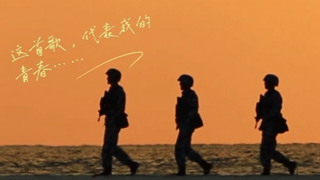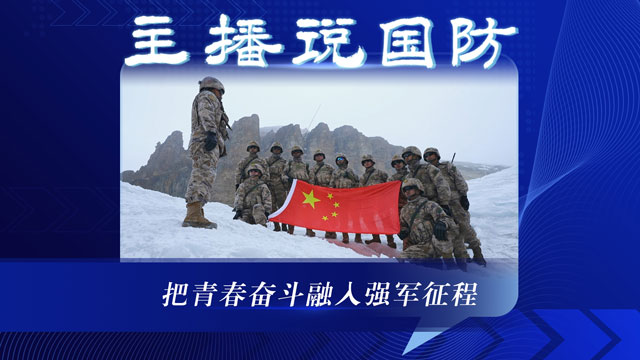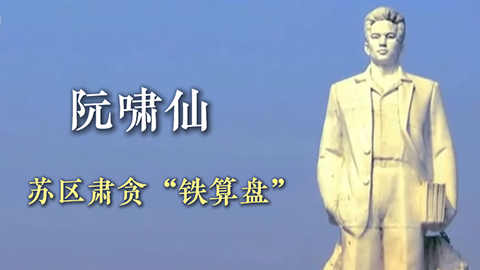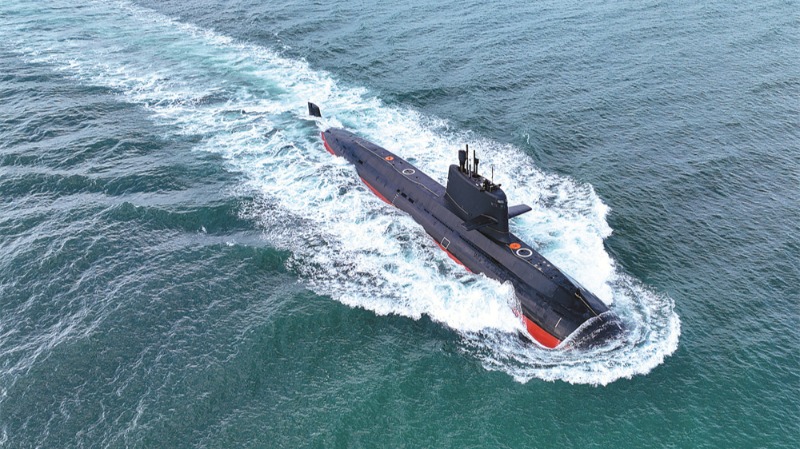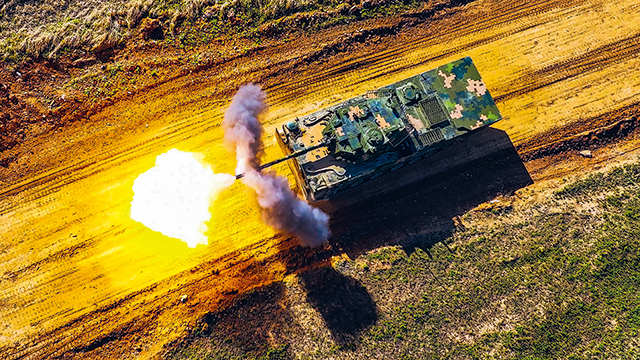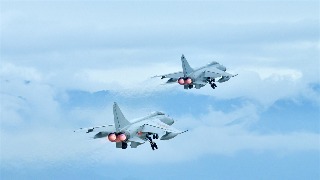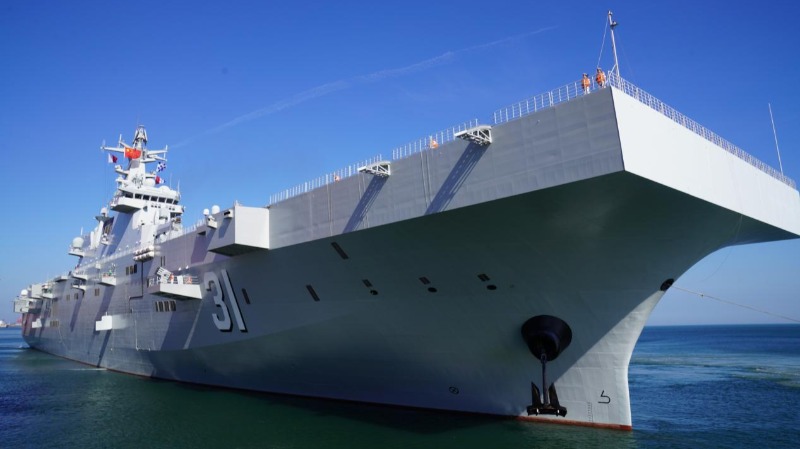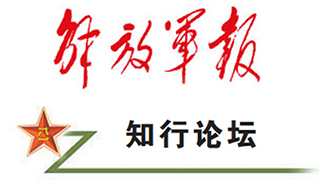李超
By Li Chao
乌克兰危机爆发后,欧盟国家持续援乌,至今已为乌克兰提供了超过800亿欧元的援助。随着危机不断延宕,不少国家因财力不济,在援乌问题上已逐渐显露疲态。目前,斯洛伐克、匈牙利等国均公开反对进一步援乌。与此形成鲜明对比的是,德国政府近日向乌交付了大量军事装备,还宣布将原定2024年军援乌克兰的经费增加一倍,提高至80亿欧元。
EU countries have continued to assist Ukraine and have provided more than 80 billion euros in aid to Ukraine after the crisis in Ukraine broke out. As the crisis continues to drag on, many countries have gradually shown weakness in aiding Ukraine due to lack of financial resources. At present, Slovakia, Hungary and other countries have publicly opposed further aid to Ukraine. In contrast, Germany has recently delivered a large amount of military equipment to Ukraine and announced that it will double the original funding for military aid to Ukraine in 2024 to 8 billion euros.
德国因二战等历史原因,在相关军事行动上一向比较谨慎。乌克兰危机爆发后,德国曾一度因援乌迟缓而备受盟友批评,其向乌克兰提供坦克等重型装备的决定,也是在美国、波兰等国的持续催促下才做出。此次,德国一反常态积极援乌,令外界十分关注。
Due to historical reasons including the World War II, Germany has been cautious in related military operations. After the outbreak of the Ukraine crisis, Germany was criticized by its allies for its delay in aiding Ukraine. Its decision to provide tanks and other heavy equipment to Ukraine was made under continued pressure from countries like the US and Poland. This time, Germany took a proactive stance in assisting Ukraine, attracting attentions within the international community.
德国援乌态度的改变并非一朝一夕。在乌克兰危机持续延宕的近两年里,德国对“时代转折”的感受日益强烈,对“战争威胁”认知不断强化,各界在援乌问题上声量不断升高,这也为不断加码援乌奠定了基础。
The change in Germany's attitude towards assisting Ukraine was not a sudden turn. Over the past two years of prolonged Ukraine crisis, Germany has increasingly sensed the change of the era and heightened its awareness of the "threat of war." Public perception regarding the support for Ukraine has steadily intensified, laying the groundwork for the gradual escalation of aid to Ukraine.
与此同时,德国长期以来对美国形成安全依赖,面对眼前的“热战威胁”,其原本有限的自主意识进一步萎缩,对外政策受美国的影响相应增大。目前在德国的三党联合政府中,主掌外交部、经济部等重要部门的绿党,亲美反俄立场突出,从内部推动德国政府紧随美国外交政策。尽管与美国在俄乌问题上目标并不完全一致,但德国仍在总体上配合美国,其中一个重要的体现,就是在安全领域更多出钱出力。
Meanwhile, Germany has long been dependent on the US for security, and in the face of the immediate "threat of hot war," its autonomy was further limited and the US influence on Germany's foreign policy kept increasing. In the current three-party coalition government of Germany, the Green Party, which controls important departments such as the Federal Foreign Office and the Ministry for Economic Cooperation and Development, has a prominent pro-US and anti-Russia stance. As a result, it internally drives the German government to closely align with US foreign policy. Despite not entirely sharing the same goals with the US on the Russia-Ukraine issue, Germany has still cooperated with the US in general. One important manifestation of this cooperation is Germany's increased financial and military contributions in the security area.
持续援乌虽然展示的是与美国保持共同对外的政治意志,但背后还体现了综合国力特别是经济实力的支撑。欧债危机期间,德国就曾作为最主要的出资方,推动欧盟走出危机。近两年,欧盟经济下行压力不断增大,德国尽管自身经济发展面临种种挑战,但其基础仍强于其他欧盟国家,目前仍有援乌的底气和实力。
The continued assistance to Ukraine not only demonstrates a shared political will with the US but also reflects the its comprehensive national strength, especially economic power. During the European debt crisis, Germany played a crucial role as the main contributor, helping the EU overcome the crisis. In the past two years, the economic pressures on the EU have continued to mount, and while Germany faces various challenges in its own economic development, its foundation is still stronger than that of other EU countries. Currently, Germany still has the confidence and capacity to provide assistance to Ukraine.
综上所述,在欧美国家纷纷萌生退意之时,德国高调宣布加大援乌力度,实际上是“一箭三雕”之举。一是在全球目光都投向巴以冲突的背景下,向乌克兰发出“不离不弃”的信号,对俄罗斯继续施以威慑;二是对美国明确表达欧盟的安全关切,提醒美国勿因巴以而忽视俄乌;三是向盟友展示领导力,亦表明自身的“西方属性”,履行维护欧盟安全的义务。
At a time when the US and some European countries considered withdrawal, Germany's high-profile announcement of increased aid to Ukraine is, in fact, a move that achieves multiple objectives. First, against the backdrop of global attention on the Israeli-Palestinian conflict, Germany is signaling a commitment to Ukraine, sending a message and continuing to deter Russia. Second, it expresses EU's security concerns to the US, reminding the US not to overlook the Russia-Ukraine situation because of the Israeli-Palestinian conflict. Third, Germany showcases leadership to allies while emphasizing its "Western identity," fulfilling the obligation to uphold EU security.
不过,德国如此大规模军援最终可能“雷声大雨点小”。一方面,乌克兰危机以来德国经济形势一直不佳,今年甚至可能成为唯一陷入衰退的发达工业国。近期有德媒曝光,德国政府2024年预算中对乌军援缺口超过50亿欧元。也就是说,眼下的承诺很可能无法完全兑现。另一方面,德国民众对于援乌的效果和代价也存在疑虑。近期民调显示,支持进一步援乌的德国民众比例已有所降低。德国总理朔尔茨近期也表示,他已准备好与俄罗斯总统普京进行新的对话。这表明德国仍期待发挥政治斡旋的作用,而非全面转向依赖军事手段解决问题。
However, Germany's large-scale military assistance may ultimately result in "much ado about nothing." On one hand, Germany's economic situation has been unfavorable since the onset of the Ukraine crisis, and this year it may even become the only developed industrialized country to experience a recession. Recently, German media exposed a budget gap of over 5 billion euros for military aid to Ukraine in the German government's 2024 budget. This means that the current commitments may not be fully realized. On the other hand, the German public has concerns about the effectiveness and cost of aiding Ukraine. Recent polls indicate a decrease in the proportion of Germans supporting further assistance to Ukraine. German Chancellor Olaf Scholz recently stated that he is prepared for new talks with Russian President Vladimir Putin. This suggests that Germany still hopes that political mediation can play a role, rather than fully shifting towards relying on military means to address the issue.
(作者单位:中国现代国际关系研究院欧洲所)
(The author is with the Department for European Studies, China Institute of International Studies)







